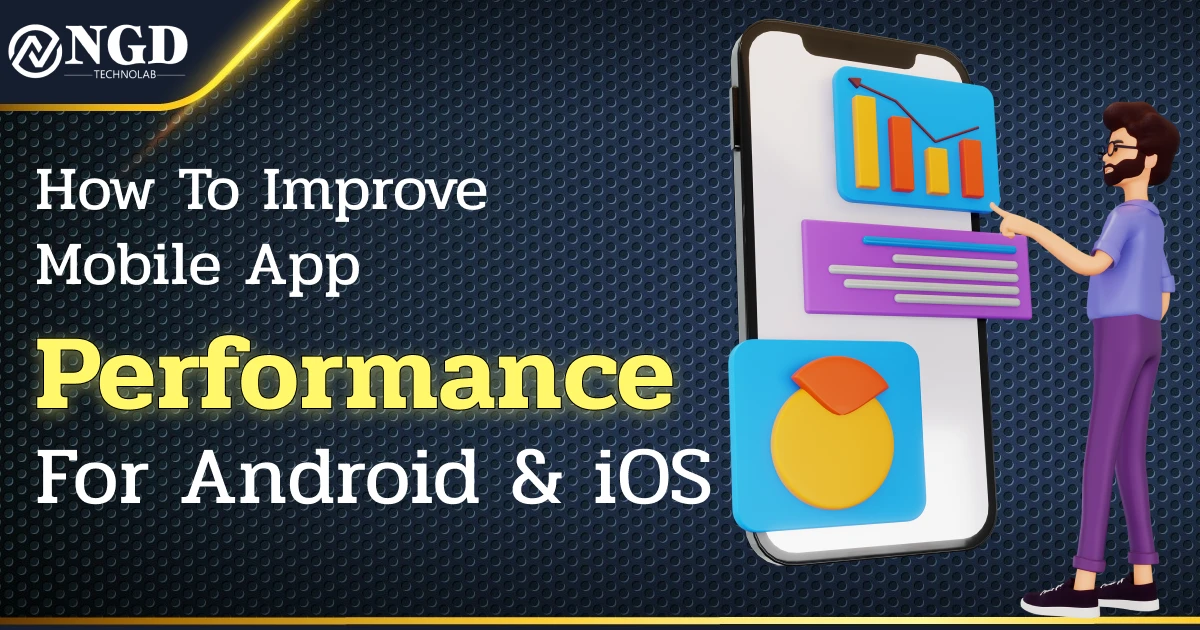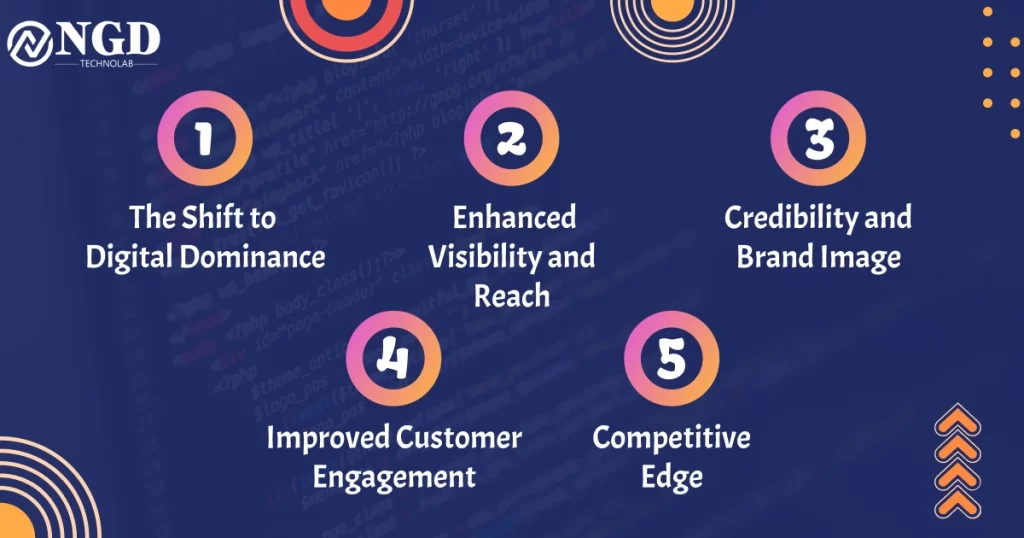How To Improve Mobile App Performance For Android & iOS?
-
Harshid Patel

Mobile app performance is a critical factor influencing user satisfaction and engagement. In this comprehensive guide, we’ll explore the key aspects of optimizing mobile apps for both Android and iOS platforms. From understanding the unique challenges posed by each operating system to implementing best practices for efficient code and resource management, we’ve got you covered.
Understand Mobile App Performance
Mobile app performance refers to the responsiveness, speed, and overall efficiency of an application on a user’s device. It encompasses various elements, including loading times, smooth navigation, and resource utilization. As users increasingly demand seamless experiences, developers must prioritize performance optimization.
Optimizing app performance is not just about meeting user expectations; it directly impacts user retention, app store rankings, and overall success in the competitive app market. Users are more likely to abandon slow or glitchy applications, leading to negative reviews and diminished brand reputation.
Android and iOS, being the two dominant mobile operating systems, present unique challenges and opportunities for developers. Understanding the intricacies of each platform is crucial for crafting an app that performs well across diverse devices.
Key Factors Influencing Mobile App Performance
The hardware specifications of a device significantly influence app performance. Developers must consider factors such as processor speed, memory, and storage capacity when optimizing their apps for different devices.
The underlying operating system plays a vital role in determining how an app interacts with device resources. We’ll explore the specific considerations for both Android and iOS and how developers can leverage platform-specific features for optimal performance.
In an era where users expect constant connectivity, we’ll discuss the impact of network conditions on app performance. Strategies for handling slow or unreliable networks and optimizing data usage will be explored.
Efficient coding practices are fundamental to mobile app performance. We’ll delve into techniques for writing clean, optimized code that minimizes resource consumption and maximizes speed.
Optimizing Mobile Apps for Android
Developing for Android comes with its own set of challenges. From device fragmentation to varying screen sizes, we’ll discuss how developers can navigate these challenges and create a consistent experience across Android devices.
Specific coding practices can significantly impact app performance on Android. We’ll explore techniques such as code splitting, optimizing loops, and reducing method calls to create a more responsive app.
Effectively managing resources is crucial for Android app performance. We’ll cover strategies for efficient memory usage, handling background processes, and optimizing graphics and animations.
Thorough testing is essential for identifying and addressing performance issues. We’ll introduce various testing tools and methodologies specific to the Android platform.
Enhancing Mobile App Performance on iOS
iOS presents its own set of considerations, including the closed ecosystem and strict app store guidelines. We’ll explore how developers can leverage iOS features and adhere to guidelines while optimizing performance.
For developers using Swift, Apple’s programming language, we’ll discuss optimization techniques specific to Swift, including reducing memory footprint and leveraging Swift’s performance-enhancing features.
Effective memory management is critical for iOS app performance. We’ll delve into techniques such as automatic reference counting (ARC) and optimizing data structures to minimize memory usage.
Monitoring app performance in real-time is essential for identifying and addressing issues promptly. We’ll introduce tools and methods for monitoring and optimizing iOS app performance.
Cross-Platform Strategies for Optimal Performance
As the demand for cross-platform apps grows, we’ll explore the importance of designing apps that perform seamlessly across both Android and iOS devices.
We’ll discuss popular cross-platform development frameworks, such as React Native and Flutter, and how developers can use them to streamline the development process while maintaining optimal performance.
Cross-platform development comes with its own set of challenges. We’ll address common challenges and provide solutions to ensure consistent and high-performance experiences across platforms.
Best Practices for Mobile App Performance
User interface and experience design play a crucial role in app performance. We’ll discuss best practices for creating an intuitive and responsive UI that enhances overall user satisfaction.
Strategies for efficient data caching and management will be explored, helping developers strike a balance between providing up-to-date information and minimizing data usage.
Keeping apps updated is not only essential for introducing new features but also for addressing performance issues. We’ll discuss the importance of regular updates and maintenance in ensuring long-term app performance.
User feedback is a valuable resource for identifying performance issues. We’ll explore how developers can leverage user feedback to continuously improve app performance and address emerging challenges.
Testing and Debugging for Performance
Thorough testing is a cornerstone of performance optimization. We’ll discuss the different types of testing, including load testing and user testing, and their role in identifying and addressing performance issues.
An overview of performance testing tools and techniques will be provided, empowering developers to simulate various scenarios and identify potential bottlenecks in their apps.
Common performance issues, such as slow loading times and excessive resource consumption, will be addressed, along with strategies for effective debugging and issue resolution.
Conclusion
In conclusion, optimizing mobile app performance for both Android and iOS is a multifaceted process that requires a deep understanding of the platforms and meticulous attention to detail. By implementing the strategies and best practices discussed in this guide, developers can create apps that not only meet but exceed user expectations, leading to increased user satisfaction and app success.
Frequently Asked Questions
Mobile app performance optimization is crucial for ensuring a smooth and responsive user experience. It directly impacts user satisfaction, retention, and overall success in the competitive app market.
Key factors include hardware considerations, operating system impact, network and connectivity issues, and the importance of writing efficient code.
Developers can optimize Android apps by addressing specific challenges, implementing code optimization techniques, efficient resource management, and utilizing Android performance testing tools.
iOS-specific considerations include adhering to app store guidelines, Swift code optimization, effective memory management, and the use of iOS performance monitoring tools.
Cross-platform compatibility is important for reaching a broader audience. Challenges include maintaining consistent performance across different platforms, which can be addressed using cross-platform development frameworks.
Get Free consultation and let us know about your custom web and Mobile App project idea

Over 13+ years of work experience, we have built 210+ web and mobile apps
We can help you with
- Dedicated Developer
- delivering high-quality development
- Custom Mobile App Development
- Innovative Solution For Startups and Enterprise
Latest Blogs
Explore the Latest Blogs on Trends and Technology.




